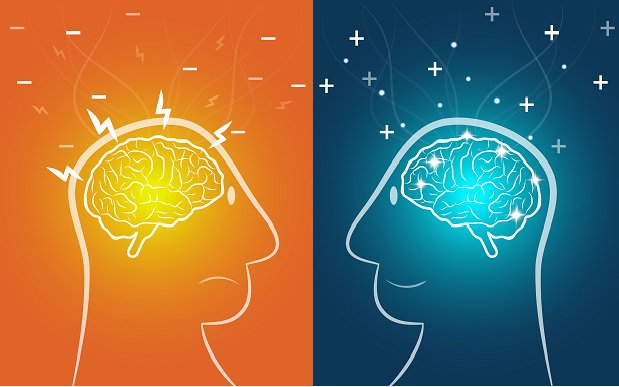Envy is a complex and often uncomfortable emotion that arises when we perceive that someone else has something we desire but lack. This desire arises from a sense of lack or inadequacy in our own lives. This could be material possessions, achievements, qualities, relationships, or even specific experiences. At its core, envy involves a comparison between ourselves ands. It arises from a desire for something that another person possesses, and it is linked to imbalances in the Heart and Solar Plexus Chakras. Energetically, envy disrupts our energy field and affects our relationships by introducing negativity and blockages. Understanding and addressing envy through self-awareness and energetic practices can help transform it into a more constructive and positive force in our lives. Considered as a sin in almost all religions, envy is one of the most potent causes of unhappiness, bringing sorrow to committers of envy, while giving them the urge to inflict pain upon others. Despite being a common emotion, envy is often misunderstood and can be quite destructive if not addressed properly. In this essay, we will explore the nature of envy, its effects on individuals and relationships, and how we can learn to manage and transform this emotion for personal growth and well-being.
Envy is often confused with jealousy, but the two emotions are distinct. Jealousy involves a fear of losing something we already have to someone else, while envy is about wanting something we do not have that someone else possesses.
The Roots of Envy
Envy stems from a variety of sources. Psychologically, it often arises from feelings of inadequacy and insecurity. When we compare ourselves to others and perceive that we are lacking in some way, it can trigger envious feelings. This comparison is natural to some extent, as humans are social creatures and often measure their success and worth against that of their peers.
Social and cultural factors also play a significant role in fostering envy. In a society that emphasizes competition and success, people are constantly bombarded with images and messages that highlight what they lack. Social media exacerbates this by presenting curated, idealized versions of others’ lives, making it easy to fall into the trap of comparing ourselves unfavorably to others.
The Impact of Envy
Envy can have profound effects on individuals and their relationships. On a personal level, it can lead to a range of negative emotions, including frustration, bitterness, and low self-esteem. When we are consumed by envy, it can be difficult to appreciate our own achievements and the positive aspects of our lives. Instead, we focus on what we lack, which can create a cycle of perpetual dissatisfaction and unhappiness.
In relationships, envy can breed resentment and hostility. It can damage friendships, romantic relationships, and even professional connections. When we envy someone, it can be challenging to genuinely celebrate their successes and be happy for them. This can lead to strained interactions and a breakdown in trust and intimacy. Moreover, envy can drive individuals to engage in destructive behaviors, such as gossiping, undermining others, or even sabotaging their efforts.
The Psychology Behind Envy
From a psychological perspective, envy is often linked to our self-concept and self-worth. When we see others achieving what we desire, it can feel like a reflection of our own inadequacies. This can trigger a defensive response, leading us to devalue the other person’s achievements or to justify our own shortcomings. Cognitive dissonance theory suggests that when there is a discrepancy between our self-perception and our observations of others, we experience discomfort. Envy is one way our minds cope with this discomfort.
Key Characteristics of Envy
·Comparison: Envy always involves a comparison between oneself and another person. This comparison often highlights perceived deficiencies in our own lives.
·Desire: There is a strong desire for the object, quality, or achievement possessed by the other person.
·Resentment: Envy is usually accompanied by feelings of resentment or bitterness towards the person who has what we desire.
·Self-Focus: Envy tends to focus on our perceived shortcomings or deficiencies, making it difficult to appreciate our own strengths and achievements.
Causes of Envy
·Insecurity: Feelings of inadequacy and low self-esteem can make us more susceptible to envy. When we doubt our own worth or abilities, we are more likely to envy others who seem to have what we lack.
·Societal and Cultural Factors: Societal values and cultural norms can foster envy. For example, a culture that highly values wealth and status can lead individuals to envy those who are perceived as more successful or affluent.
·Social Media: Platforms like Instagram and Facebook often present idealized versions of people’s lives, making it easy to compare ourselves unfavorably to others and feel envious.
·Upbringing: Our upbringing and early experiences can shape our susceptibility to envy. If we were frequently compared to others or if our achievements were often downplayed, we might be more prone to feeling envious as adults.
From Which Chakra Does Envy Emanate?
In the context of chakra, envy is often associated with imbalances in the Heart Chakra (Anahata) and the Solar Plexus Chakra (Manipura).
Heart Chakra (Anahata): This chakra, located in the center of the chest, governs our ability to give and receive love, compassion, and empathy. When this chakra is out of balance, we might struggle with feelings of inadequacy and have difficulty feeling content and connected with others, which can manifest as envy.
Solar Plexus Chakra (Manipura): Located in the upper abdomen, this chakra is associated with self-esteem, personal power, and confidence. An imbalance here can lead to feelings of inadequacy and a lack of self-worth, fueling envy toward others who appear to have what we desire.
How Is Envy Viewed from an Energetic Perspective?
From an energetic perspective, envy can be seen as a disruptive force that affects our personal energy field and our interactions with others. Here’s how envy manifests energetically:
Blockages: Envy creates energetic blockages principally in the Heart and Solar Plexus Chakras. These blockages can prevent the free flow of positive energy and hinder our ability to experience genuine joy and contentment.
Lower Vibration: Envy is considered a lower vibrational emotion. It resonates at a lower frequency compared to emotions like love, compassion, and joy. This low vibration can affect our overall energy field, making us feel heavy and drained.
Distorted Energy Exchange: Envy can lead to distorted energy exchanges in our interactions with others. Instead of fostering loving, supportive connections, envy can create tension, competition, and unpleasant energy dynamics.
Managing and Overcoming Envy
·Self-Awareness: Recognize and acknowledge your feelings of envy. Understanding what triggers your envy can help you address the underlying issues.
·Shift Focus: Focus on your own strengths, achievements, and goals. Practice gratitude for what you have rather than fixating on what you lack.
·Set Personal Goals: Use your envy as a motivator to set and achieve personal goals. Channel your energy into self-improvement and personal growth.
·Limit Comparisons: Reduce exposure to sources that trigger envy, such as social media. Remind yourself that everyone’s journey is unique, and comparisons are often unfair and unproductive.
·Cultivate Empathy: Practice empathy and try to understand the other person’s perspective. Recognize that everyone has their own challenges and struggles.
·Seek Support: Talk to a trusted friend, family member, or therapist about your feelings. Sharing your emotions can provide valuable perspective and support.
·Energetic Recalibration: Addressing envy involves shifting our energy towards self-awareness, self-compassion, and gratitude. Practices such as meditation, energy healing, and chakra balancing can help recalibrate our energetic field and transform envy into a more positive and empowering emotion.
Mantra Literally Means Mind Protection. Mantras Can Help Us To Go Through Different Situations By Enhancing a Clear and Strong Mind.
OM AMOGHASIDDHI AH
Mantra of Amoghasiddhi Buddha Family. Air element and green color. It improves the heart chakra.






